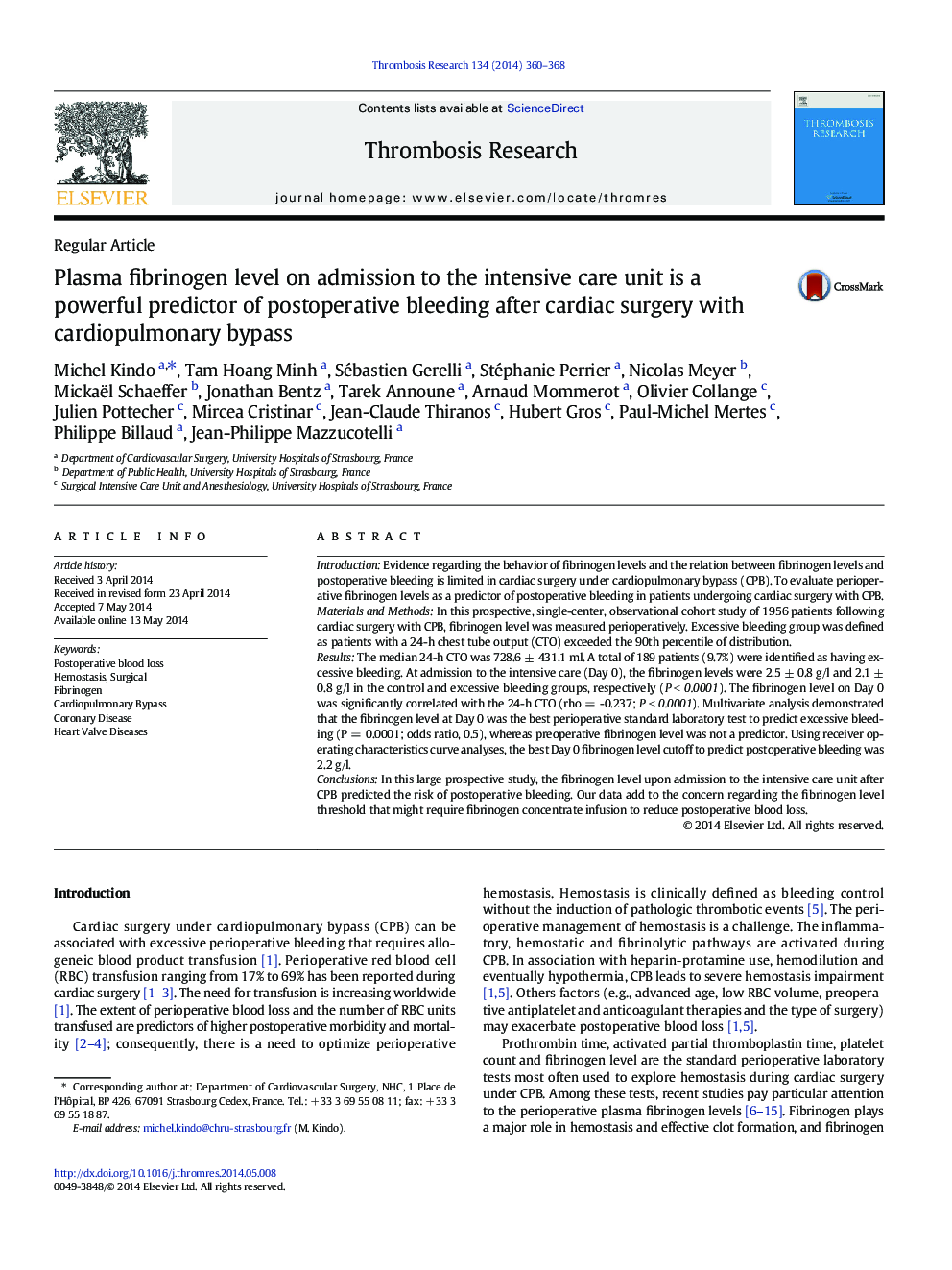| Article ID | Journal | Published Year | Pages | File Type |
|---|---|---|---|---|
| 6002323 | Thrombosis Research | 2014 | 9 Pages |
IntroductionEvidence regarding the behavior of fibrinogen levels and the relation between fibrinogen levels and postoperative bleeding is limited in cardiac surgery under cardiopulmonary bypass (CPB). To evaluate perioperative fibrinogen levels as a predictor of postoperative bleeding in patients undergoing cardiac surgery with CPB.Materials and MethodsIn this prospective, single-center, observational cohort study of 1956 patients following cardiac surgery with CPB, fibrinogen level was measured perioperatively. Excessive bleeding group was defined as patients with a 24-h chest tube output (CTO) exceeded the 90th percentile of distribution.ResultsThe median 24-h CTO was 728.6 ± 431.1 ml. A total of 189 patients (9.7%) were identified as having excessive bleeding. At admission to the intensive care (Day 0), the fibrinogen levels were 2.5 ± 0.8 g/l and 2.1 ± 0.8 g/l in the control and excessive bleeding groups, respectively (P < 0.0001). The fibrinogen level on Day 0 was significantly correlated with the 24-h CTO (rho = -0.237; P < 0.0001). Multivariate analysis demonstrated that the fibrinogen level at Day 0 was the best perioperative standard laboratory test to predict excessive bleeding (P = 0.0001; odds ratio, 0.5), whereas preoperative fibrinogen level was not a predictor. Using receiver operating characteristics curve analyses, the best Day 0 fibrinogen level cutoff to predict postoperative bleeding was 2.2 g/l.ConclusionsIn this large prospective study, the fibrinogen level upon admission to the intensive care unit after CPB predicted the risk of postoperative bleeding. Our data add to the concern regarding the fibrinogen level threshold that might require fibrinogen concentrate infusion to reduce postoperative blood loss.
